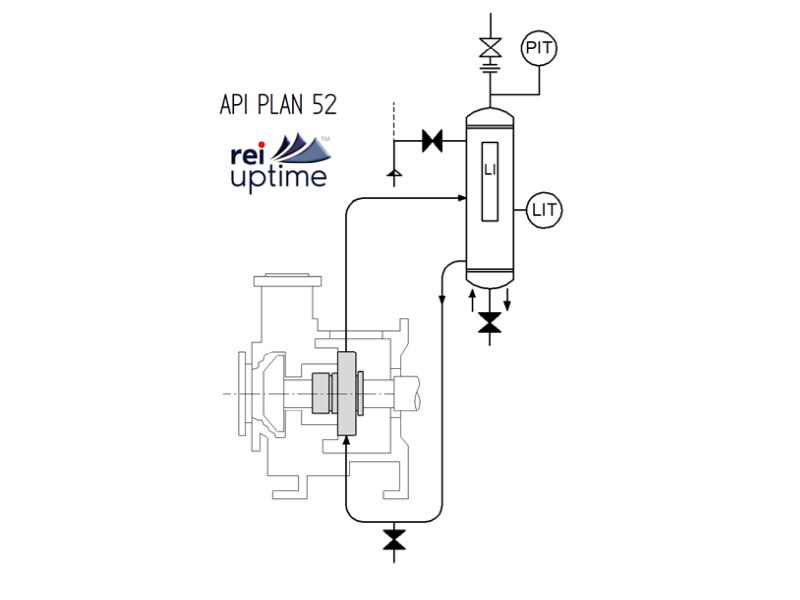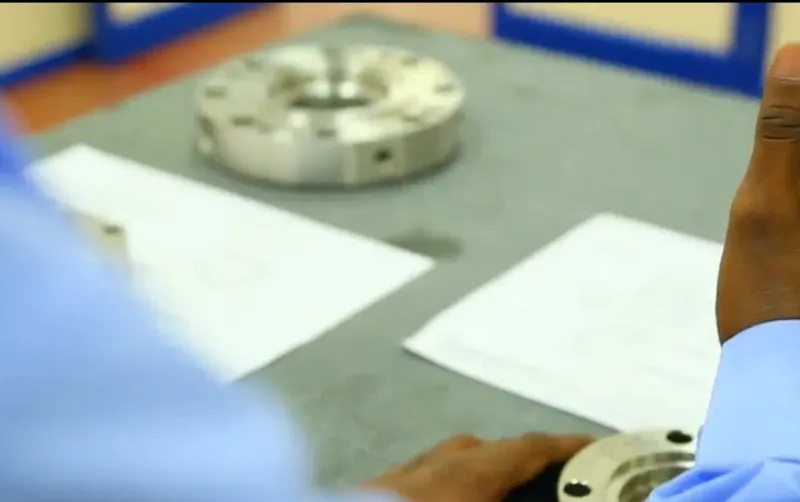

June 7, 2024
Understanding the Different Loading Mechanisms in Mechanical Seals
Mechanical seals are vital components in rotating equipment, designed to prevent leakage and maintain the efficiency of pumps and compressors. One of the key elements that influence the performance and reliability of mechanical seals is the loading mechanism. Loading mechanisms ensure that the seal faces remain in contact under various operating conditions. Here, we will explore the different types of loading mechanisms used in mechanical seals, including springs, wave springs, and bellows, and their impact on seal performance.
Springs
Springs are one of the most common loading mechanisms used in mechanical seals. They are responsible for maintaining face contact during both static and dynamic conditions.
- Coil Springs
- Design: Coil springs are typically helical and can vary in size and tension.
- Application: They are widely used in general-purpose seals due to their simplicity and effectiveness.
- Impact on Performance: Coil springs provide consistent force and are relatively easy to install and maintain. However, they can be susceptible to corrosion and wear in harsh environments.
- Multiple Springs
- Design: Multiple smaller springs distributed around the seal circumference.
- Application: Often used in high-pressure and high-speed applications.
- Impact on Performance: They offer uniform load distribution and can accommodate minor misalignments. This design enhances seal stability and longevity.
- Wave Springs
- Design: Wave springs are flat springs that are formed into a wave-like pattern.
- Application: Suitable for applications with limited axial space.
- Impact on Performance: Wave springs provide a compact solution and can deliver precise load control. They are particularly beneficial in applications where space constraints are a concern.
Bellows
Bellows are flexible, accordion-like components that can expand and contract to maintain seal face contact. They are made from materials such as metal or elastomers.
- Metal Bellows
- Design: Made from metal alloys, metal bellows are robust and durable.
- Application: Ideal for high-temperature and high-pressure applications.
- Impact on Performance: Metal bellows provide excellent resistance to thermal expansion and contraction, making them suitable for extreme conditions. They also eliminate the need for secondary sealing elements, reducing potential leak paths.
- Elastomeric Bellows
- Design: Made from flexible rubber-like materials.
- Application: Common in low to moderate pressure applications.
- Impact on Performance: Elastomeric bellows offer good flexibility and are resistant to chemical attack, making them suitable for a variety of chemical processing applications. However, they may not perform well under high-temperature conditions compared to metal bellows.
Disk Springs
Disk springs, also known as Belleville washers, are conical-shaped washers that can be stacked in various configurations to achieve different load characteristics.
- Single Disk Springs
- Design: A single conical washer used to provide a specific load.
- Application: Used in applications where precise load control is required.
- Impact on Performance: They offer high load capacity in a small space and are effective in applications with limited axial space.
- Stacked Disk Springs
- Design: Multiple disk springs stacked in series or parallel configurations.
- Application: Used in high-load applications requiring adjustable load characteristics.
- Impact on Performance: Stacked disk springs can be customised to provide a wide range of load and deflection characteristics, enhancing seal performance in demanding conditions.
Impact on Seal Performance
The choice of loading mechanism significantly affects the mechanical seal's performance, reliability, and suitability for specific applications. Factors to consider include:
- Load Distribution: Proper load distribution ensures uniform face contact, reducing wear and extending seal life.
- Flexibility: Flexible mechanisms like bellows accommodate misalignment and thermal expansion, maintaining effective sealing under varying conditions.
- Space Constraints: Compact mechanisms like wave springs and disk springs are ideal for applications with limited space.
- Environmental Resistance: Material choice impacts resistance to corrosion, temperature, and chemical exposure, affecting seal longevity and reliability.
Reliability Seals’ Expertise
At Reliability Seals, we understand the critical role that loading mechanisms play in the performance of mechanical seals. Our extensive range of products includes seals with various loading mechanisms, each designed to meet the specific needs of different industrial applications. Whether you require robust metal bellows for high-temperature environments or compact wave springs for space-constrained applications, our expert team can help you select the ideal solution to ensure optimal performance and reliability.
Explore our range of mechanical seals and discover how Reliability Seals can enhance your equipment's efficiency and longevity. For more information, contact us.







